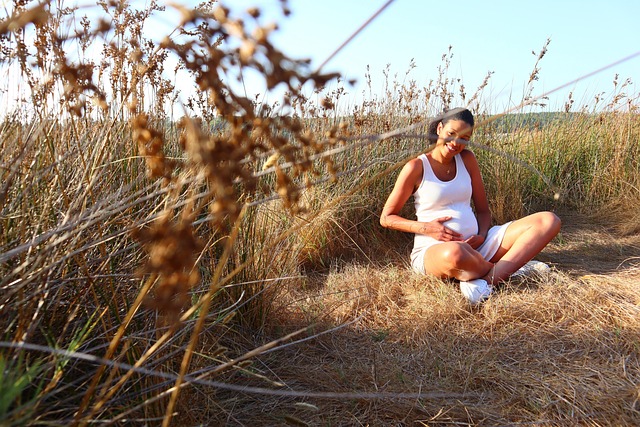Many cultures have turned to herbal remedies for centuries, seeking natural methods to enhance fertility. Despite advancements in conventional medicine, many individuals—especially those with ovaries—often explore these alternatives. A significant reason for this trend is the historical neglect of female-specific conditions in medical research, leaving many feeling unheard by their healthcare providers.
Even as medical practices evolve, a considerable number of people continue to seek out alternative treatments, particularly in the realm of fertility. This area remains in a state of development, with options for addressing infertility still somewhat limited.
The Historical Use of Herbs in Fertility
In North America, the use of herbs for reproductive health dates back to 1492, although Indigenous peoples had long relied on these plants. Historically, midwives and community members would support those trying to conceive with homemade remedies sourced from local flora. This practice is echoed in modern times, as seen in the memoir of a woman who recounts her mother’s herbalist practices during the 1990s.
Across the globe, traditional Chinese medicine has utilized herbal treatments for gynecological issues, including infertility, for over 3,000 years. Ancient texts from various cultures, including Hindu texts and the Old Testament, also reference fertility treatments well before modern reproductive technologies emerged.
While various cultures have successfully reproduced using these methods, scientific research on their impact on fertility is still limited. Although some studies show potential benefits, establishing a clear connection between herbal use and improved fertility outcomes is challenging.
Which Herbs Are Most Commonly Associated with Fertility?
Much of the knowledge surrounding herbs that may aid conception is anecdotal. However, some herbs frequently appear in literature on the topic. For example, chaste berry is often cited for regulating menstrual cycles and alleviating PMS, potentially enhancing ovulation. Black cohosh is another herb known to stimulate ovaries and ease cramps, though it’s recommended for use only in the first half of the menstrual cycle.
Other herbs that may support those trying to conceive include:
- Maca: An adaptogen that may reduce stress and boost fertility.
- Cinnamon: Believed to enhance sperm quality and help with insulin regulation, particularly for those with PCOS.
- Tribulus: Used in traditional Chinese medicine to address irregular ovulation and improve sperm health.
- Red raspberry leaf: Rich in essential nutrients, it may help regulate cycles and strengthen the uterine wall.
- Alfalfa: A nutrient-dense plant that may help balance estrogen levels.
- Stinging nettle: Traditionally used to strengthen the uterus and potentially reduce miscarriage risk.
Other herbs like evening primrose oil, red clover, and fennel seed are thought to have antioxidant and anti-inflammatory properties.
Can Herbs Really Combat Infertility?
The effectiveness of herbal support varies widely among individuals. If you’re considering herbal remedies, it’s wise to consult your healthcare provider, especially if you’re on other medications. Collaborating with a knowledgeable naturopath or functional medicine practitioner ensures you’re using high-quality herbs, as the market does have counterfeit products. Proper dosage is crucial, just as with pharmaceuticals.
Some limited research suggests that combining herbal remedies with fertility drugs can enhance the chances of conception, particularly in IVF scenarios. However, there are only about 20 studies exploring the effects of herbs on infertility, and many lack control over factors like age and medical history. As the Mayo Clinic notes, there is currently no solid evidence supporting herbal treatments for infertility, highlighting the need for further research.
What About Women Over 40?
There is a notable study involving a 43-year-old woman with diminished ovarian reserves who turned to traditional Chinese medicine after halting IVF treatments. Under the guidance of a practitioner, she followed a specific herbal regimen and successfully conceived. This case offers hope but should be viewed with caution since it’s based on a single individual’s experience.
Regulatory Considerations
It’s important to note that the FDA does not regulate herbal supplements like pharmaceuticals, meaning claims made by manufacturers may not be backed by rigorous testing. Therefore, supplements should be taken under medical supervision to ensure safety.
In conclusion, while herbal remedies have a long history of use for fertility, their effectiveness remains uncertain. If you’re intrigued by the potential of herbal treatments, it’s best to discuss this option with your healthcare provider or a fertility specialist.
For further insights, check out our blog on understanding ovulation here. Additionally, you can learn about at-home insemination kits from trusted sources like Make A Mom and explore resources on the success of IUI here.
Summary: Herbal remedies have been utilized for centuries in various cultures to enhance fertility, but scientific research on their effectiveness is still limited. Many individuals may find hope in these natural options, especially if conventional treatments have not met their needs. However, consulting with healthcare professionals is essential to navigate these choices safely and effectively.

